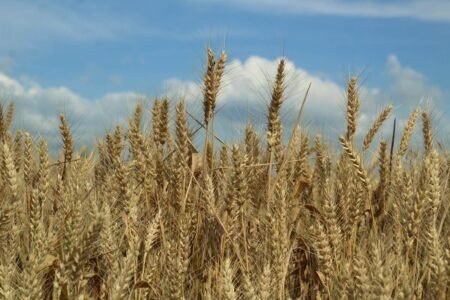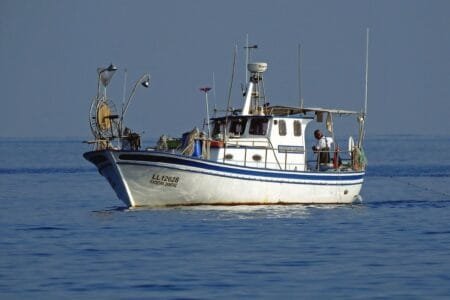In 2007 there was a record number of notifications sent to the EU’s Rapid Alert System for Food and Feed (RASFF) 7,354 altogether indicating that this tool which ensures the safety of food for Europeans is functioning well. According to the “2007 RASFF annual report “, last year 961 alerts and 2015 information notifications were received, giving rise to 4339 additional information notifications. This high number is mainly attributed to the increase of the additional information notifications up by 13.5% compared to 2006. Most notifications in 2007 concerned official controls on the internal market (43%), while 42% concerned products from non-EU countries which were blocked at the border by EU control authorities when the risks were identified. Just as in 2006, the product category for which the most alerts were sent was fish products (21%).
Advertisement
The total number of notifications transmitted has increased. This is entirely due to the increased number of follow-up notifications.
The report highlights a number of issues, among others:
- Notifications on aflatoxins in pistachio nuts from Iran have decreased while the imports have remained at the same level, showing a decrease in non-compliant consignments.
- On the other hand, the notifications for consignments of nuts and dried fruits from Turkey containing too high levels of aflatoxins have increased.
- An increased number of notifications was received concerning dioxins in canned fish liver.
- An account is given in the annual report of an important case of contamination with dioxins of guar gum from India.
- As in 2006, an increase in notifications for mercury in fish was observed in 2007.
- A chapter in the report is dedicated to foreign bodies in food and feed and another one for pesticide residues, in view of the increasing number of notifications.
- Since China is identified as the country of origin of the product notified in no less than 12% of the notifications, a chapter was included on RASFF issues related specifically to China.
No, it doesn’t. It may well mean the contrary. The increase of notifications in 2007 being caused by an increased follow-up to original notifications is indicating that Member States are communicating more intensively on the actions they have taken following a notification. That information is then in turn necessary or useful to other Member States in identifying the product, deciding upon actions to be taken, etc.
The Rapid Alert System for Food and Feed (RASFF) is primarily a tool for exchange of information between competent authorities on consignments of food and feed in cases where a risk to human health has been identified and measures have been taken, such as withholding, recalling, seizure or rejection of the products concerned.
This quick exchange of information allows all Member States to verify immediately whether they are also affected by the problem. Whenever the product is already on the market and should not be consumed, the Member States’ authorities are then in a position to take all urgent measures, including giving direct information to the public, if necessary.
The rapid alert system is a concrete and visible result of European integration. The quick exchange of information about food- and feed-related risks ensures coherent and simultaneous actions by all Member States. This is a major contribution to consumer safety.
Our weekly publication of an overview of notifications makes consumers aware that we are active in this domain.
It is foremost important that the problem is notified. A template exists that Member States use to provide all relevant and useful information, such as identification of the product, hazards found, measures taken and traceability information about the product.
Once the information is received, other Member States will verify if they are concerned. If the product is on their market, they will be able to trace it using the notification’s information. They will report back to the RASFF on what they have found and what measures they have taken.
It is also possible that a company in the Member State has supplied the problematic product. The Member State will then report to RASFF the outcome of its investigations into the origin and distribution of the product and the cause of the problem identified. This allows other Member States to take rapid action if required.
The recent incident involving the contamination of sunflower oil with mineral oil could serve as a good example. It all started with a company in the United Kingdom informing its supplier in France of its finding of abnormal levels of mineral oil in the sunflower oil supplied. The French supplier informed the (French) authorities of the finding. The authorities carried out official analyses and informed the RASFF of the results.
Meanwhile, FEDIOL, the European association of oil and protein meal industry, informed the European Commission of its findings of mineral oil in several shipments to the EU from Ukraine. The European Commission transmitted this information through the RASFF and asked the European Food Safety Authority (EFSA) for a quick evaluation of the risk involved. Based on the EFSA evaluation, the Commission recommended Member States about which action to take. All this information was also circulated via the RASFF.
Member States started to check the traceability of the sunflower oil shipments including the products that were processed with it, the analytical results of samples of the products found and the measures taken.
By 1 July 2008, 70 notifications with additional information were transmitted and the European Commission’s RASFF team received 335 and sent out 161 registered e-mails about this incident between April 23 and July 1, 2008.
The criteria for notification to the RASFF can be found in article 50 of Regulation (EC) N° 178/2002.
Whenever a member of the network has any information relating to the existence of a serious direct or indirect risk to human health deriving from food or feed, this information is immediately notified to the Commission under the RASFF. The Commission immediately transmits this information to the members of the network.
Article 50.3 of the Regulation gives further criteria for when a RASFF notification is required.
Without prejudice to other Community legislation, the Member States shall immediately notify the Commission under the rapid alert system of:
- any measure they adopt, which is aimed at restricting the placing on the market or forcing the withdrawal from the market or the recall of food or feed in order to protect human health and requiring rapid action;
- any recommendation or agreement with professional operators, which is aimed, on a voluntary or obligatory basis, at preventing, limiting or imposing specific conditions on the placing on the market or the eventual use of food or feed on account of a serious risk to human health requiring rapid action;
- any rejection, related to a direct or indirect risk to human health, of a batch, container or cargo of food or feed by a competent authority at a border post within the European Union.
The RASFF network involves the EU Member States, the EEA countries (Norway, Liechtenstein and Iceland), the EFTA Secretariat coordinating the input from the EEA countries, EFSA and the Commission as the manager of the system.







